Vol. 72, Iss. 7, July 2015
Occupational inhalational exposure and serum GM-CSF autoantibody in pulmonary alveolar proteinosis
Riassunto
Objectives Although the serum granulocyte-macrophage colony stimulating factor autoantibody (GMAb) levels have been recognised as a diagnostic marker in primary pulmonary alveolar proteinosis (PAP), their role in PAP with occupational inhalational exposure (PAPo) remains unclear.
Methods Forty-five consecutive patients with PAP were enrolled. Each patient with PAP was assessed for baseline clinical characteristics, chest high-resolution CT (HRCT), serum GMAb and occupational exposure. Fifty healthy controls were included to define normal ranges for GMAb levels. Ninety-seven hospital controls with other respiratory diseases were included to establish prevalence of a history of occupational inhalation exposure.
Results According to the serum GMAb cut-off value of 2.39 μg/mL, 84.4% of the recruited patients with PAP had positive serum GMAb with a median level of 28.7 μg/mL, defined as autoimmune PAP, and the remaining 15.6% had negative serum GMAb with a median level of 0.16 μg/mL, defined as non-autoimmune PAP. Also, 34.2% of patients with autoimmune PAP had a history of occupational inhalational exposure, which was not significantly higher than that of hospital controls (34.2% vs 19.6%, p=0.072). Four patients with PAPo showed negative GMAb. Their arterial oxygen tension, pulmonary function parameters and chest HRCT features were significantly different when compared with patients with autoimmune PAP (p<0.05). These four non-autoimmune occupational lung disease cases culminated in 3 deaths and a lung transplant.
Conclusions A number of patients with PAP who may have occupational inhalational exposure and negative serum GMAb represent a high possibility of silicoproteinosis and very poor survival.



